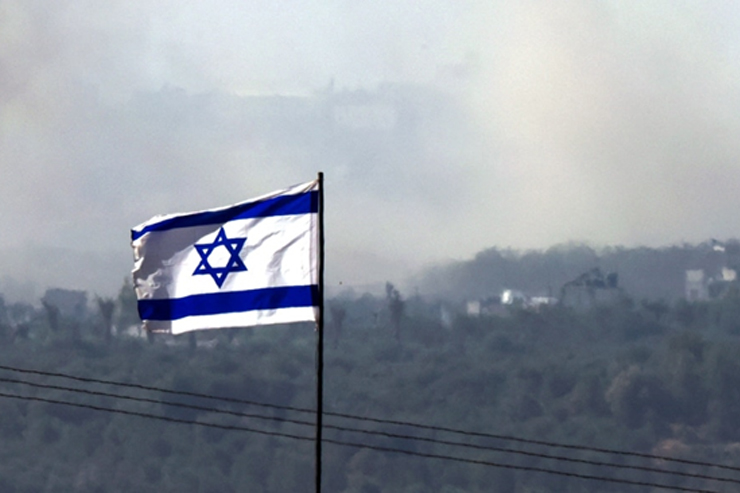
With more than 30,000 Palestinians, including thousands of children, dead in Israel’s genocidal war on Palestine in Gaza since October 2023, Israel is still far from achieving its key strategic objective, i.e., to completely eliminate Hamas. Hamas, first of all, is not simply an entity that can be bombed out of existence; Hamas is an idea with deep penetration into Palestinian society. The idea it represents – which also led it to launch its October 7 attacks – is that a violent struggle, rather than a negotiated settlement, against Israel is the only solution to what is now more than a seven-decade-old conflict. Israel’s indiscriminate killings since October 7 have only strengthened this idea. There is a lot that Israel could have learnt from the US experience in Afghanistan, where its two-decade-long war on the Taliban could not kill the idea that the Taliban’s militant movement embodies.
For many years, the Palestinian question looked ‘dead’. The US-led ‘peace’ process between Israel and the Gulf states apparently rendered the Palestinian issue even more irrelevant. But it was the Palestinian people – Hamas inevitably has roots in the society – who brought the Palestine question to life and put it on the international agenda, forcing the US-led ‘peace’ process to hit a pothole and disappear, at least for now. Therefore, even if Israel can eliminate Hamas, it can hardly decimate the idea of Palestinian rights that the people of Palestine want now more than ever. This is where Israel’s actual worries lie. The struggle will continue.
In fact, Israel is aware of what can only be a grim reality for them. Israel’s intelligence services reported recently that support for Hamas remains strong in Gaza. This report directly contradicts Netanyahu’s claims to have destroyed 80 percent of Hamas. While it may be true that Hamas is no longer operational in the same sense as it was before the October 7 attacks due to having lost a lot of territory to Israeli forces, there is little denying that it remains active.
For the rest of the world, including the West, Israel’s stubbornness in making a change in its deeply flawed strategy is becoming a problem. With Joe Biden too occupied with elections and facing a belligerent Donald Trump for a rematch, politicians in the US are directly attacking Netanyahu for his ultimate strategy of destroying Gaza (rather than just Hamas). In fact, Biden himself has indicated that he might hold the supply of weapons to Israel unless Israel can ensure to protect civilians. This, according to Israeli officials, is already happening. This is on top of US efforts to supply aid to Gaza despite Israeli objections. While it might be correct to say that Washington is only a reluctant anti-Israel player, there is little denying that whatever change we are seeing in Washington has to do with the sheer brutality of Israel’s war on the Gazans.
In this context, Chuck Schumer’s recent speech in the US Congress has come as a shock to many – not only in the US but also in Israel. Schumer, who is the highest-ranking Jewish American and leads the Democrat majority in the Senate, said that Israel was becoming a “pariah” state. Schumer is amongst those who were full-throated in their support for Israel after the Hamas attack five months ago. But, even he appears to have changed his stance, which is why he went on to call for fresh elections in Israel that might push Netanyahu out of office to allow for the war to come to an end. To quote him:
“The Netanyahu coalition no longer fits the needs of Israel after October 7. The world has changed, radically, since then, and the Israeli people are being stifled right now by a governing vision that is stuck in the past … Five months into this conflict, it is clear that Israelis need to take stock of the situation and ask: Must we change course? … [and] At this critical juncture, I believe a new election is the only way to allow for a healthy and open decision-making process about the future of Israel, at a time when so many Israelis have lost their confidence in the vision and direction of their government.”
If the US is having second thoughts about Israel now, Israel’s brutal war is putting the Gulf states in a much more complicated situation, who are now more than ever under pressure to take a strong stance against Israel. For all practical purposes, it means that if Israel does not end its war, it will lose, for a long time, the economic and geopolitical normalization it hopes to achieve in the region. In other words, for all practical purposes, Israel would continue to be encircled by what it has always seen as a “hostile” region. How could this bode well for the idea of a long-term, strategic gain over Hamas at the expense of thousands of innocent civilian lines? How can this bode well for another key objective Israel has been pursuing for many years now, i.e., to be recognised as a legitimate state in the Gulf?
Jerusalem needs to understand that its legitimacy depends, first and foremost, on recognising the legitimacy of the Palestinians. If Israel ends up destroying Palestine, killing the prospects of an independent Palestine state, it will also eliminate its own chances of gaining recognition. There can be no legitimate state of Israel without a parallel legitimate State of Palestine. Israel, in other words, is involved in a war that is self-defeating, that defies a clear victory, and that can hardly help it achieve any meaningful success.
Salman Rafi Sheikh, research-analyst of International Relations and Pakistan’s foreign and domestic affairs, exclusively for the online magazine “New Eastern Outlook”
